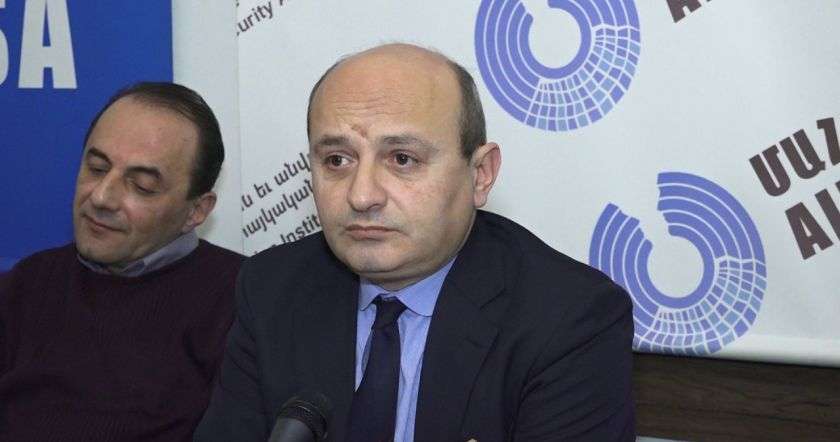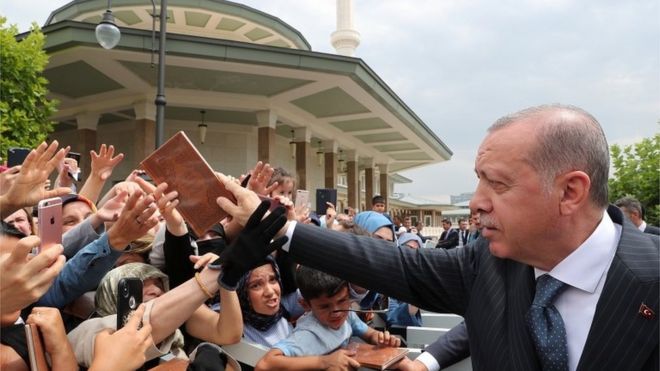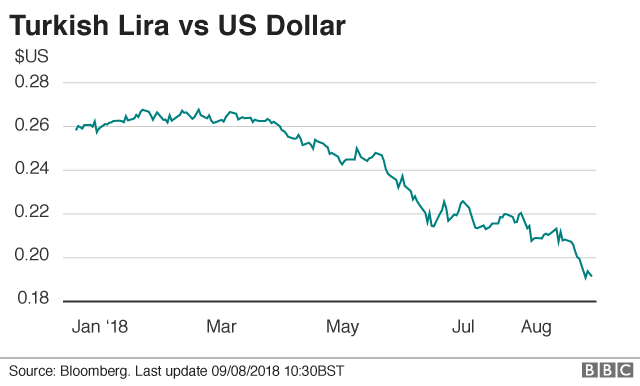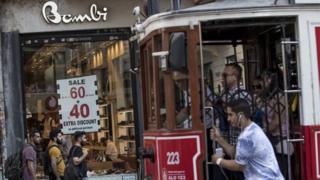«Դուք հստակեցրեք, թե ով է ձեր գլխավորը` վարչապե՞տը, թե ԱԳ նախարարը». Կոլերով. 168.am
Lragir.am
12.07.2018

«Առաջին հերթին ես հակասական դիրքորոշումներ եմ տեսնում Հայաստանի ներսում: Սկզբից եղավ ՀՀ վարչապետ Նիկոլ Փաշինյանի հայտարարությունը կարգավորման գործընթացում ԼՂ ներգրավման անհրաժեշտության մասին, իսկ հետո եղավ ՀՀ ԱԳ նախարար Զոհրապ Մնացականյանի հայտարարությունն առ այն, որ կարգավորումը տեղի է ունենալու հին կանոնների համաձայն: Երբ Հայաստանը դադարի ինքն իրեն հակասել, երբ ՀՀ ԱԳ նախարարը դադարի հերքել իր ղեկավարին` վարչապետին, այդ ժամանակ մենք կմեկնաբանենք նման հարցերը: Իսկ մինչ դա ՀՀ վարչապետը դիրքորոշում է հայտնել, որը ճիշտ է, լավ, արժանի, անհրաժեշտ, իսկ արտգործնախարարն այն հերքել է»,- «168 Ժամ»-ի հետ զրույցում այս մասին ասել է ՌԴ առաջին կարգի պետական խորհրդական Մոդեստ Կոլերովը՝ անդրադառնալով ՀՀ Վարչապետ Նիկոլ Փաշինյանի և ՀՀ ԱԳ նախարար Զոհրապ Մնացականյանի հայտարարություններին:
Ըստ նրա, Մնացականյանը հերքել, հրաժարվել է Նիկոլ Փաշինյանի մոտեցումից ԼՂ հակամարտության խաղաղ կարգավորման բանակցային գործընթացում Ղարաբաղի մասնակցության անհրաժեշտության վերաբերյալ:
«Քանի դեռ նման իրավիճակ է, մեկնաբանելու ոչինչ չեմ տեսնում: Այսպիսին է Ռուսաստանից երևում իրավիճակը Հայաստանի ներսում: Եթե այստեղ են հակասություններ, իմաստ չեմ տեսնում այլ հակասություններ մեկնաբանել, որոնք Հայաստանի ներսում չեն»,-ասել է Կոլերովը:
Նա նաև նշել է, որ Ադրբեջանը պատերազմ է նախապատրաստում:
«Ես միանգամից կասեմ` նախապատրաստվում է պատերազմ: Եվ նման իրավիճակում, երբ Ադրբեջանը պատերազմ է նախապատրաստում, Մնացականյանի հայտարարությունները սկանդալային են, անհամարժեք ու անընդունելի: Նա ցույց է տալիս, թե ոչ մի նոր բան տեղի չի ունենում, ցույց է տալիս, թե չի եղել պատերազմ 2016 թվականի ամսին:
Լավ, Սերժ Սարգսյանի աշխատակազմը ևս նման բան էր անում, նրա իշխանությանը տապալեցիք ու կրկնում եք նույնը: Այդ դեպքում ինչո՞ւ տապալեցիք: Այսքանը: Մենք Մոսկվայում նստած չենք հասկանում: Մեզ մոտ հարցեր են ծագում: Դուք հստակեցրեք, թե ով է ներկայում Ձեր գլխավորը` վարչապե՞տը, թե՞ ԱԳ նախարարը, իսկ մենք հետո կմեկնաբանենք: Կրկին պատերազմի մասին, պատերազմ պատրաստվում է, պատերազմի շեմին նման հայտարարությունները, որոնք Մնացականյանն է անում, կարելի է անվանել կապիտուլիացիա, իսկ վարչապետի հայտարարությունները` ադեկվատ»:
Lragir.am
12.07.2018

«Առաջին հերթին ես հակասական դիրքորոշումներ եմ տեսնում Հայաստանի ներսում: Սկզբից եղավ ՀՀ վարչապետ Նիկոլ Փաշինյանի հայտարարությունը կարգավորման գործընթացում ԼՂ ներգրավման անհրաժեշտության մասին, իսկ հետո եղավ ՀՀ ԱԳ նախարար Զոհրապ Մնացականյանի հայտարարությունն առ այն, որ կարգավորումը տեղի է ունենալու հին կանոնների համաձայն: Երբ Հայաստանը դադարի ինքն իրեն հակասել, երբ ՀՀ ԱԳ նախարարը դադարի հերքել իր ղեկավարին` վարչապետին, այդ ժամանակ մենք կմեկնաբանենք նման հարցերը: Իսկ մինչ դա ՀՀ վարչապետը դիրքորոշում է հայտնել, որը ճիշտ է, լավ, արժանի, անհրաժեշտ, իսկ արտգործնախարարն այն հերքել է»,- «168 Ժամ»-ի հետ զրույցում այս մասին ասել է ՌԴ առաջին կարգի պետական խորհրդական Մոդեստ Կոլերովը՝ անդրադառնալով ՀՀ Վարչապետ Նիկոլ Փաշինյանի և ՀՀ ԱԳ նախարար Զոհրապ Մնացականյանի հայտարարություններին:
Ըստ նրա, Մնացականյանը հերքել, հրաժարվել է Նիկոլ Փաշինյանի մոտեցումից ԼՂ հակամարտության խաղաղ կարգավորման բանակցային գործընթացում Ղարաբաղի մասնակցության անհրաժեշտության վերաբերյալ:
«Քանի դեռ նման իրավիճակ է, մեկնաբանելու ոչինչ չեմ տեսնում: Այսպիսին է Ռուսաստանից երևում իրավիճակը Հայաստանի ներսում: Եթե այստեղ են հակասություններ, իմաստ չեմ տեսնում այլ հակասություններ մեկնաբանել, որոնք Հայաստանի ներսում չեն»,-ասել է Կոլերովը:
Նա նաև նշել է, որ Ադրբեջանը պատերազմ է նախապատրաստում:
«Ես միանգամից կասեմ` նախապատրաստվում է պատերազմ: Եվ նման իրավիճակում, երբ Ադրբեջանը պատերազմ է նախապատրաստում, Մնացականյանի հայտարարությունները սկանդալային են, անհամարժեք ու անընդունելի: Նա ցույց է տալիս, թե ոչ մի նոր բան տեղի չի ունենում, ցույց է տալիս, թե չի եղել պատերազմ 2016 թվականի ամսին:
Լավ, Սերժ Սարգսյանի աշխատակազմը ևս նման բան էր անում, նրա իշխանությանը տապալեցիք ու կրկնում եք նույնը: Այդ դեպքում ինչո՞ւ տապալեցիք: Այսքանը: Մենք Մոսկվայում նստած չենք հասկանում: Մեզ մոտ հարցեր են ծագում: Դուք հստակեցրեք, թե ով է ներկայում Ձեր գլխավորը` վարչապե՞տը, թե՞ ԱԳ նախարարը, իսկ մենք հետո կմեկնաբանենք: Կրկին պատերազմի մասին, պատերազմ պատրաստվում է, պատերազմի շեմին նման հայտարարությունները, որոնք Մնացականյանն է անում, կարելի է անվանել կապիտուլիացիա, իսկ վարչապետի հայտարարությունները` ադեկվատ»:







 Image copyrightREUTERS Image captionFinancial markets are uneasy about President Erdogan's views on economic policy
Image copyrightREUTERS Image captionFinancial markets are uneasy about President Erdogan's views on economic policy
 Image copyrightEPA
Image copyrightEPA
Comment